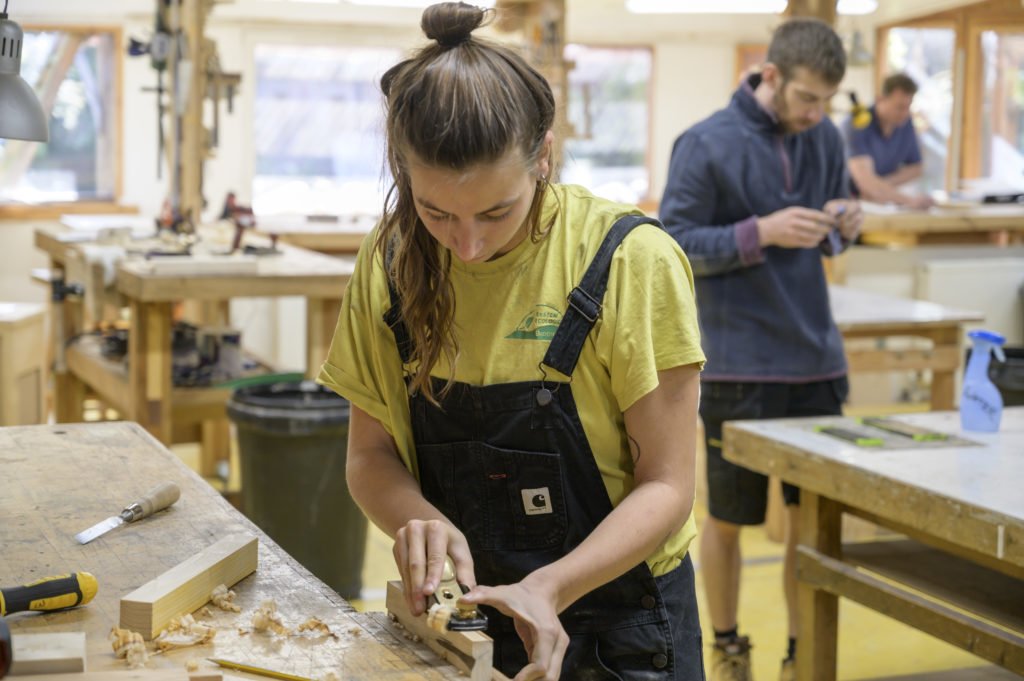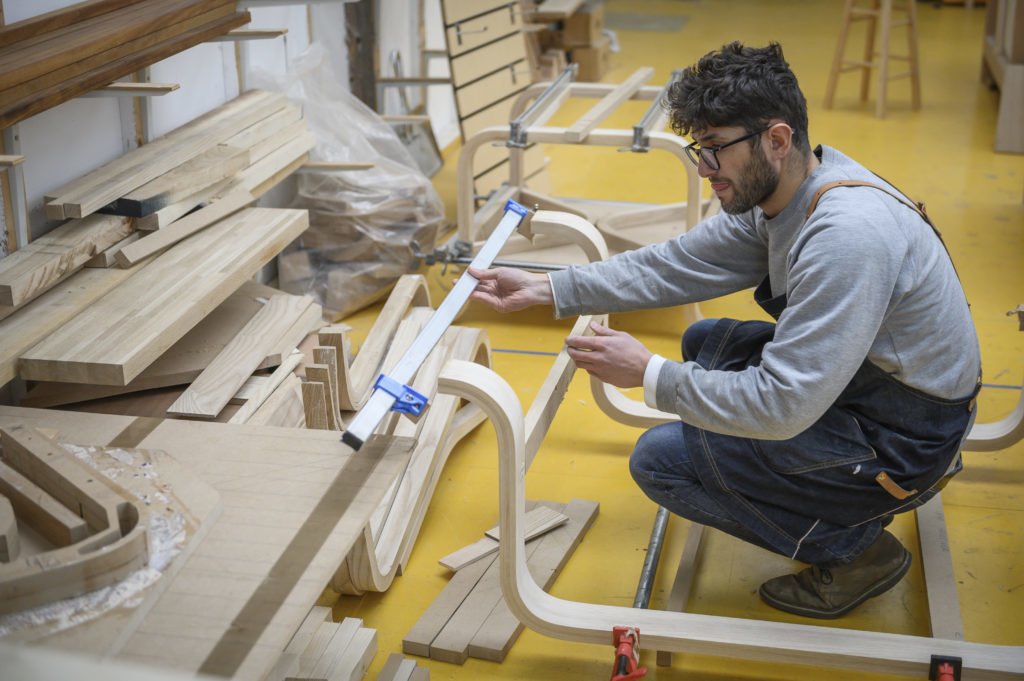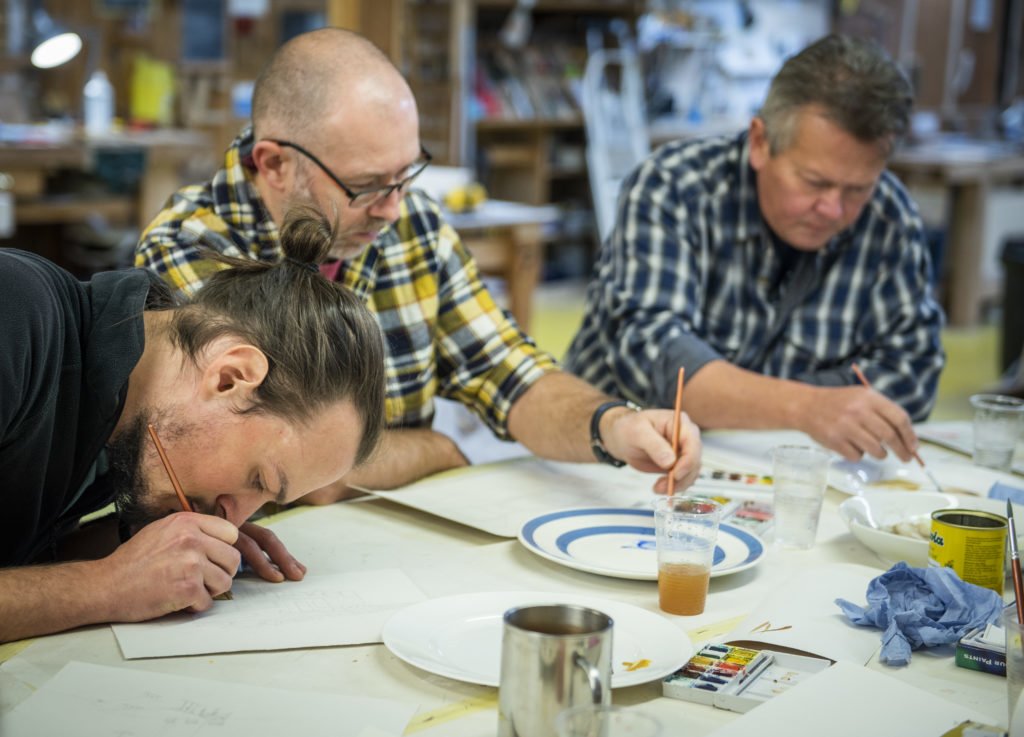For many, a furniture making career feels like a distant dream. Although they have a passion for woodwork and design, many would-be woodworkers don’t realise that furniture making is a viable career option.

There are a number of successful furniture makers in Scotland, the UK and internationally, and there is certainly a consumer appetite for bespoke and beautifully crafted furniture. Whilst not without its challenges, with the right training and resources, woodworking careers can be extremely rewarding.
In this blog, we discuss the skills needed to embark on a furniture making career, the support available, and what past graduates of our Professional course have gone on to achieve.
Technical Skills
Whether you want to design and create for an existing commercial company or set up your own workshop, you will need to have strong technical woodworking skills in order pursue a successful furniture making career.
A knowledge of the fundamental principles of woodworking is important, as is a practical understanding of speciality techniques to accommodate more complex design challenges.
At Chippendale School, our Professional course equips students with professional-grade technical skills. We start with the very basic principles, such as appropriate tools for given woodworking tasks, and work up to more specialised techniques, such as wood bending.
Our experienced in house tutors are on hand to help our students navigate through any challenges they face whilst studying. We also regularly host specialist guest lecturers, like Michael Fortune, master craftsman and an expert in bending wood and working with curves.
“On the first day, it was straight into chiselling and sawing – we got stuck in right away. The highlight of the first term was completing my first ever piece of furniture, a lounge sideboard called ‘The Hungarian’, where a hardwood plank was curved 360 degrees to give continuous lines of wood grain.”
Rupert Phelps, London-based bespoke furniture maker and Professional course graduate

Design skills
Being able to conceptualise designs is also a vital aspect of furniture making, and will set students up for success in woodworking careers. Presenting your design visions to your client or employer is an essential furniture making process. Therefore, to pursue a furniture making career, developing design skills is a must.
Professional course students are taught how to design their creations before putting them into production. They learn perspective drawing, rendering digital designs and even prototyping, so that they have a competitive edge when working with clients or employers in future. These best-practice skills give them credibility when they enter the market.
“I can remember the journey to Chippendale School on my first day, questioning whether I was creative enough to study on a course like this. I didn’t have much confidence in my artistry, although I had been doing woodworking projects on and off over the years. When I got to the school, those worries quickly faded away – the school is a melting pot of creativity, and their whole ethos encourages collaboration.
Mike Whittall, Founder of Ochre & Wood, visiting lecturer at Chippendale School and Professional course graduate

Marketing Skills
One of the most important things you will need when you pursue a furniture making career is marketing. Many of our students go on to run their own woodworking business upon graduating – whether that is taking private commissions, fitting bespoke cabinets or freelancing.
Developing technical and design skills helps our students to become excellent woodworkers, however even the best woodworker in the world needs marketing skills – how can you make a career in furniture making if nobody has heard about you?
The Professional course teaches students how to promote their businesses, such as developing their own website, using social media and using PR to raise awareness of their companies.
“The year at the school was great! You cover so much in the 30 weeks. It’s a fantastic place to be, especially in the early stages of starting your own business as a furniture maker.”
Seonaid Denholm, Founder of Yellowhammer Furniture & Restoration and Professional course graduate

Support after graduating
Starting out in the furniture making industry can be challenging, especially if you want to set up your own workshop. For that reason, we run an incubation workshop called Myrseside Studios that Professional course graduates can rent for a small cost as they set up their businesses.
They can make use of resources and materials and can seek invaluable insight from our tutors as they embark on their new woodworking careers.
Thinking about pursuing a furniture making career? Discover more about the Professional course, download a prospectus, or get in touch with a helpful member of our team.